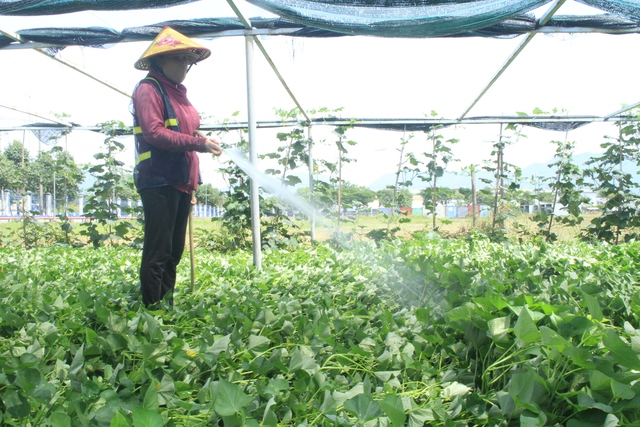 Economy
Economy


|
| A garden of Heiniken Việt Nam uses water discharged from beer production. Making an impact is a must-do trend for enterprises to develop sustainably. — Photo baochinhphu.vn |
HÀ NỘI — Việt Nam needs to create an environment to encourage enterprises to attach more attention to social impact business (SIB) and attract investment in this model, experts have said.
SIB was emerging as a trend but remained vague in Việt Nam.
This model aims to minimise environmental and social damage through balancing the 3P pillars – Profit, People and Planet.
According to the United Nations’ Sustainable Development Goals (SDGs), an impact business is one that lies at the intersection of a traditional enterprise and charity organisation. Impact businesses included inclusive businesses, start-ups and cooperatives, among which cooperatives were the majority.
Statistics of UNDP Việt Nam showed that there were about 22,000 impact businesses as of 2018, accounting for four per cent of the total number of firms.
A survey carried out by UNDP Việt Nam this year showed that 46.6 per cent of impact businesses in Việt Nam operated in agriculture, most were of small and micro scales.
Head of UNDP Việt Nam's Inclusive Growth Unit Đỗ Lê Thu Ngọc pointed out that the biggest difficulties of impact businesses were the shortage of capital coupled with the lack of information about the market output and financial support.
There was also a conflict that these impact businesses were struggling with raising capital while investment funds could not find a suitable place to pour money in.
According to Christina Ameln, Vietnam Advisor for Asian Venture Philanthropy Network Limited (AVPN), impact business was a potential sector to attract investment in Asia. However, the concept of businesses creating social and environmental values remained vague in Việt Nam and the founders themselves also had knowledge gaps about the market, finance and management.
Shuyin Tang, partner at Patamar Capital, said that impact business projects should focus on raising specific impact goals and how to measure them. “When we say the project has a great impact on society and the environment, we have to prove what the project does and what results are achieved,” she said.
Darryl J. Dong from the International Finance Corporation (IFC) said that the capital source was abundant, but what was needed was an environment to promote the flow into Việt Nam.
If a policy environment was built for impact business, investors would participate in the market, he said.
Some businesses believe that making an impact was a must-do trend if they wanted to develop sustainably.
Nguyễn Thanh Ngữ, general director of sugar company Thành Thành Công – Biên Hoà, said sustainable development was a trend. “If you do it right from the beginning, it will be more economical than growing big, then being sustainable,” he said.
Việt Nam set an ambition of achieving net zero carbon emissions by 2050 and impact business was expected to contribute to realising this goal.
As agriculture was a major carbon emitter, Thành Thành Công – Biên Hoà was looking for solutions to reduce carbon emissions for the whole supply chain from cultivation with organic farming to production with a circular model.
Nguyễn Thị Bích Vân, chairwoman of Unilever Việt Nam, which aims for all of its plastic packaging to be recycled, said that financial resources were not the biggest obstacle but awareness about the impacts.
In the 3P pillars, profit was one of them. Hồ Thị Thu Uyên from Intel Việt Nam said that it was important for enterprises to ensure the production, revenue and profit to achieve other goals. She stressed that it’s time to follow the trend of impact business and embark on sustainable development. — VNS




